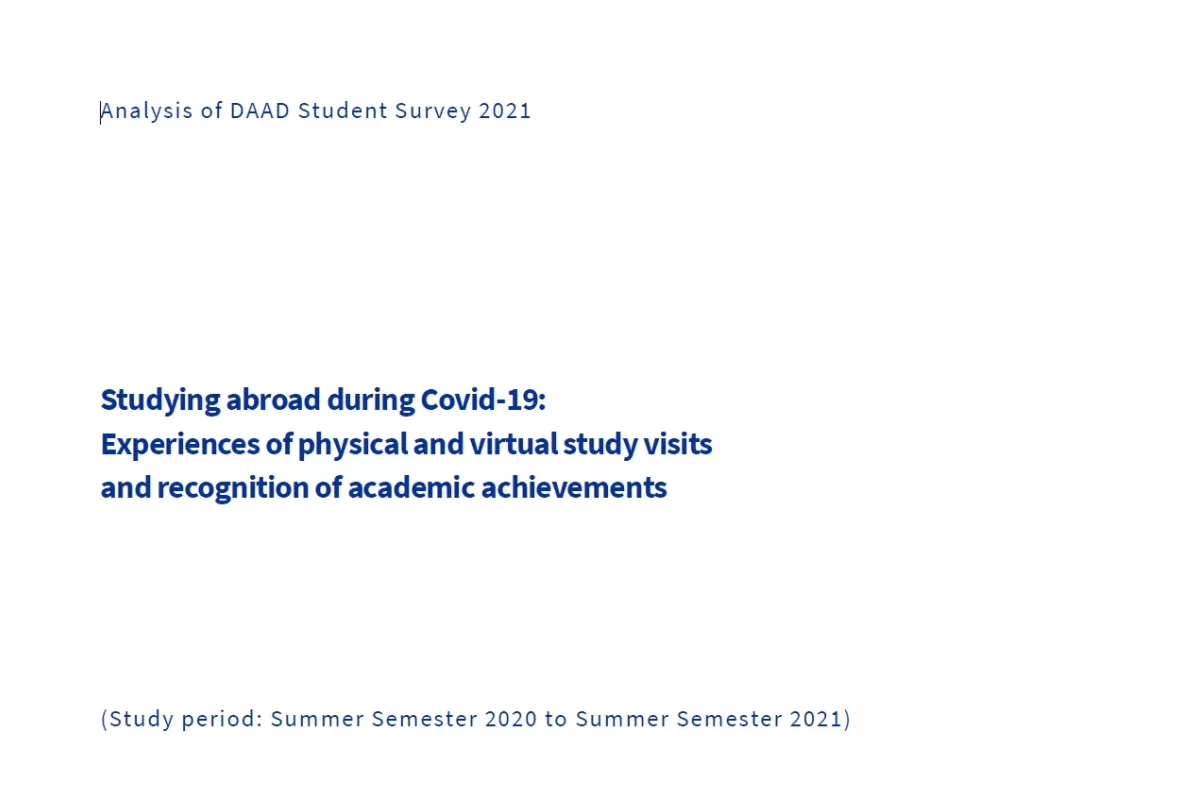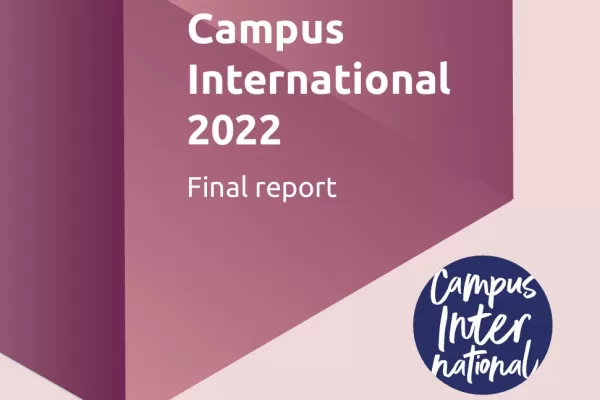Resume
Even though many students continue to prefer physical teaching, their attitudes to participating in virtual teaching formats are overall positive. On this point, the Erasmus+ and PROMOS funding programmes may have made a supportive impact, as hybrid and virtual study visits were funded alongside physical stays.
A similar trend was evident for the leisure and support services provided by higher education institutions, where students again preferred physical services for a range of reasons, presumably not least due to being able to gain intercultural experiences. Nevertheless, there was acceptance for and uptake of virtual services.
As regards the major issue of recognition of ECTS credits gained at a host institution, the result is very positive indeed: the recognition rate again rose overall and left the majority of students very satisfied, regardless of the type of stay they undertook.
Compared to previous surveys, there has been a downturn in students’ overall satisfaction with their study visits; the 83% satisfaction rate for the 2021 survey falls short of the previous survey, which recorded over 90%. This decline is primarily due to the less positive assessments made by students who undertook a hybrid or a virtual study visit. Nevertheless, it should be noted on this point that the majority of this group had originally planned to stay abroad physically but now had to accept the loss of face-to-face contact with fellow students and the chance to get to know the host country and its people. Against this backdrop, a 70% and 54% satisfaction rate among students in these groups respectively is still a reasonable outcome. It should also be borne in mind that some hybrid and virtual stays had to be started following very limited lead-up times, and there is certainly room for improvement in these types of stay.
Conclusions
- During the coronavirus pandemic, virtual stays have developed as an alternative to the previously predominantly physical study visit to a host university. For example: In the first three semesters of the coronavirus pandemic, around a third of the 3,300 respondents opted for a purely
(7 percent) or a partially virtual semester abroad (24 percent). - The proportion of teaching provided virtually abroad was also high: Regardless of the type of stay on site 80 percent of courses were taught in virtual or hybrid formats. Students were similarly satisfied with virtual teaching (71 percent) as with physical teaching (78 percent).
- In the overall assessment of their study visit, 83 percent of students were satisfied or very satisfied with their stay abroad. Despite the coronavirus pandemic, this figure was only 7 percent lower than in 2019.
- Looking to the future, the majority of students surveyed recommend maintaining a combination of physical and virtual teaching at host universities abroad.
- In terms of host countries, the decision was made during the pandemic semester, the majority of host countries were in Europe, as host countries outside continent were often difficult or impossible to reach. The most popular host countries were also classic "Erasmus countries" such as France, Spain and Sweden.
Recommendations
- Most students continue to prefer physical teaching and physical stays abroad. Nevertheless, forms of hybrid and virtual international mobility hold special potential during crises or in situations where physical mobility is difficult or impossible. Without wishing to deny the benefits of physical international mobility, it nevertheless appears worthwhile to continue investigating opportunities from hybrid and virtual mobility as alternative forms of mobility for previously non-mobile students, not least with an eye to the issues of social participation, environmental protection and sustainability.
Downloads
- Studying abroad during Covid-19: physical and virtual study visits and recognition 404KB / pdf Download
More information?
Looking for more information about this project? Get in touch: e+evaluation@daad.de.




